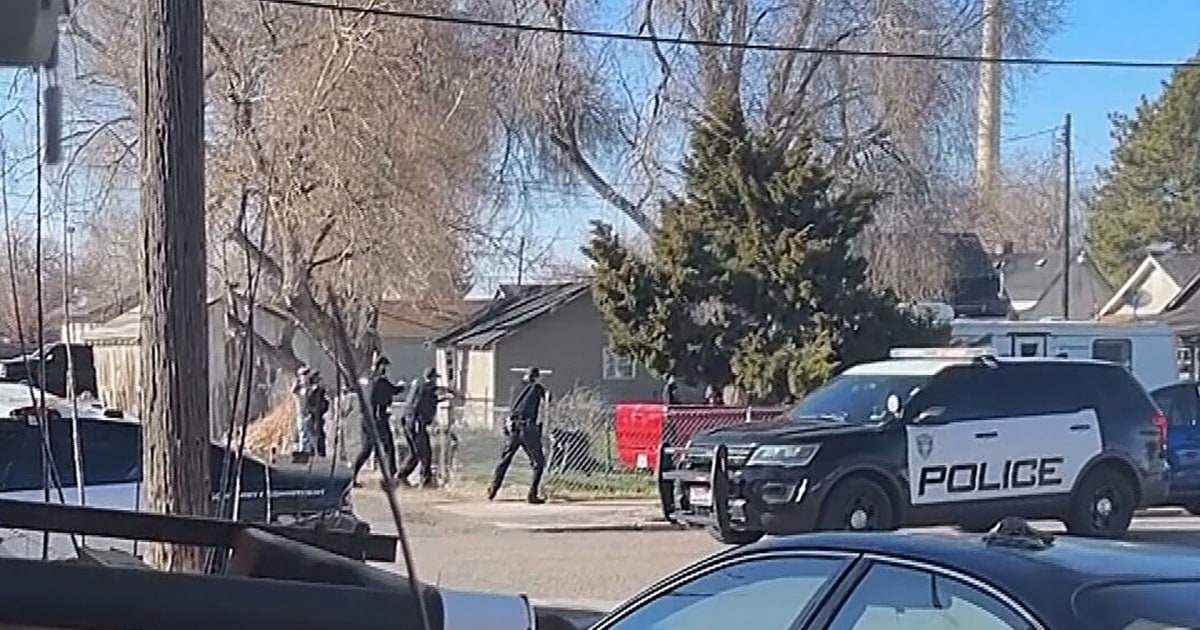Tragic Confrontation: Police Encounter with Disabled Teen Sparks National Debate
A 17-year-old physically and mentally disabled teenager was fatally shot by police officers last Tuesday in Springfield after reportedly brandishing a knife during a wellness check. The incident, captured on partial body camera footage, has ignited protests and renewed scrutiny over law enforcement protocols for handling vulnerable individuals in crisis situations.
Timeline of Events and Immediate Aftermath
According to police reports, officers responded to a 911 call from the teen’s caregiver around 2:15 PM regarding violent outbursts. Upon arrival, they encountered the 5’2″ youth holding a kitchen knife in the driveway of a residential home. Body cam footage shows officers issuing commands for approximately 90 seconds before firing four rounds when the teen allegedly advanced toward them.
- Victim Profile: Identified as Jason Cole, diagnosed with cerebral palsy and developmental delays
- Officer Details: Two veteran patrol officers with 7+ years experience each
- Weapon Recovered: 8-inch chef’s knife found at scene
Springfield Police Chief Deborah Rawlings stated during a press conference: “While we mourn this tragic loss, our preliminary review suggests officers followed current use-of-force protocols. However, we’ve requested an independent investigation by the state attorney general’s office.”
Systemic Issues in Policing Vulnerable Populations
Data from the Ruderman Family Foundation reveals disturbing trends:
- Up to half of people killed by police have disabilities
- Only 28% of departments mandate crisis intervention training (CIT)
- 911 calls for mental health crises increased 150% since 2015
Dr. Ellen Torres, a clinical psychologist specializing in disability rights, explains: “Traditional police training emphasizes quick threat neutralization. When confronting someone with cognitive impairments who may not process commands typically, this approach becomes dangerously mismatched. We need paradigm shifts in how first responders assess risk.”
Community Outcry and Demands for Reform
Protestors have gathered nightly outside Springfield Police Headquarters, holding vigils and demanding:
- Release of unedited body camera footage
- Immediate suspension of involved officers
- Increased funding for mobile crisis teams
Local disability advocate Marcus Johnson told reporters: “Jason couldn’t run away or fully comprehend the situation. His life had value, and the system failed him. We’re tired of ‘compliance’ being a death sentence for our community members.”
Comparative Approaches to Crisis Response
Some cities have implemented alternative models with promising results:
| City | Program | Outcomes |
|---|---|---|
| Eugene, OR | CAHOOTS (mental health responders) | Resolves 98% of cases without police |
| Denver, CO | STAR (medic/therapist teams) | 74% reduction in use-of-force incidents |
However, police union representatives caution against oversimplifying complex situations. “Officers make split-second decisions to protect entire communities,” said union president Frank Delgado. “Until society provides better mental healthcare infrastructure, law enforcement will keep being the default responders for crises we’re not fully equipped to handle.”
Path Forward: Policy Changes and Preventative Measures
Experts suggest multi-pronged solutions:
- Enhanced Training: Minimum 60 hours CIT for all officers
- Dual Response Systems: Pairing officers with mental health professionals
- Registry Programs: Voluntary databases of vulnerable residents for dispatch alerts
The Department of Justice has announced it will include this case in its ongoing review of police practices regarding disabled individuals. Meanwhile, Jason’s family has established a foundation to advocate for legislative reforms named “Jason’s Law,” which would require states to implement crisis response alternatives.
Broader Implications for Policing in America
This incident occurs amid national reckoning about policing methods following high-profile cases involving:
- Individuals with autism (e.g., Linden Cameron, 2020)
- Deaf communicators (e.g., Magdiel Sanchez, 2017)
- Elderly dementia patients (e.g., Karen Garner, 2020)
As Springfield mourns, the tragedy underscores urgent questions about whether current policing structures can adequately protect all citizens equally. With disability rights and police reform advocates finding rare common ground, this case may become a catalyst for meaningful change.
Readers moved by this story can contact their representatives about supporting the proposed Mental Health Justice Act (HR 1368) or donate to disability advocacy organizations through the Coalition for Responsible Policing.
See more ABC News Feed



